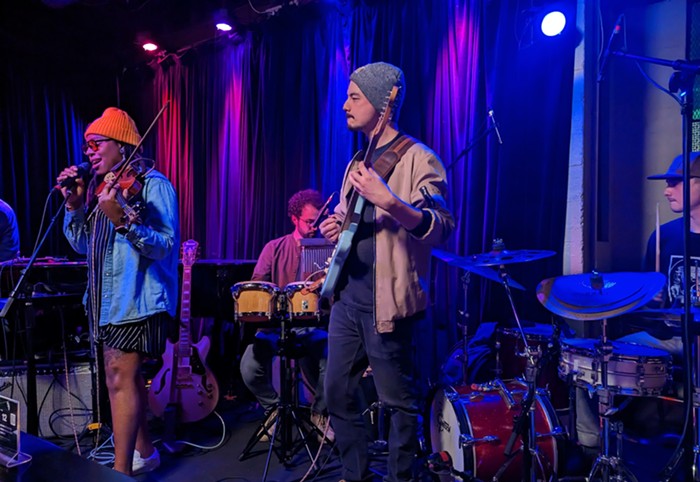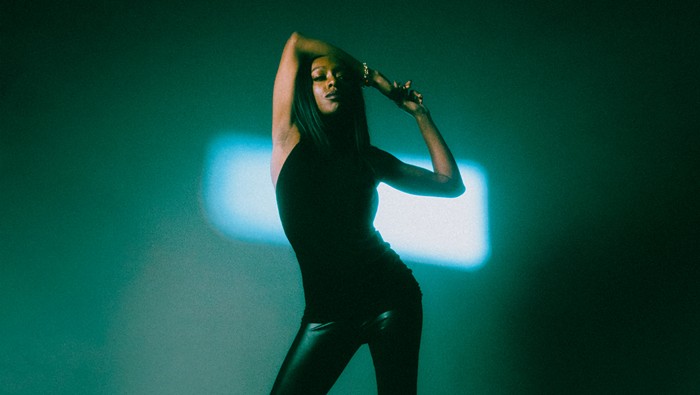Until very recently, white rappers were connected with and introduced to the public by black rappers. Beastie Boys were inaugurated by Run-D.M.C.; Young Black Teenagers (who were actually all white) were created and forwarded by Public Enemy's production team, the Bomb Squad; MC Snow was promoted by Marley Marl's MC Shan; and Everlast was on the periphery of a crew that had Ice-T as its center. The peak, and possibly the last, of this particular line of white rappers is Eminem, who had the high honor of replacing Snoop Dogg as Dr. Dre's primary protégé.
This practice of black confirmation had two functions. One, it gave the white rapper permission to use and benefit from black music. Without permission from a recognized African American rapper, the white rapper was seen as exploiting black culture in the way that his ancestors exploited black labor. The second function had to do with credibility. Dr. Dre, for example, gave Eminem "real cred"—and not just in the eyes of hiphop-consuming blacks, but also with white hiphop heads, who at the time wouldn't take a white rapper seriously if his/her skills weren't admired by the perceived owners and inventors of hiphop: blacks.
That world is now over. In the late '90s, two labels—New York's Def Jux and Minneapolis' Rhymesayer—brought an end to the shoddy (if not shady) system of white authentication. Def Jux's central figure is El-P; Rhymesayer's central figure is Slug, of the duo Atmosphere. Admittedly, the Midwest rapper Slug (Sean Daley) is not all white; his father is mixed and his grandfather was black. Nevertheless, his fan base is almost completely white. The themes of his raps, are not identifiably black themes. Slug isn't from the hood (he's working class); he's never used a gun to resolve a difficulty; he has problems with girlfriends (not hos); he doesn't use the "n" word—and yet he makes real hiphop.
Slug is associated with black rappers, such as Murs of the Living Legends, but he raps with Murs as an equal partner; Murs doesn't validate or confirm Slug's status as a rapper. Slug and other members of Rhymesayers—which is a racially mixed label—make hiphop because it's the only music they understand. In the past, popular white rappers such as Vanilla Ice or Marky Mark were simply (and poorly) imitating blacks; the same cannot be said about the accomplished white rappers of the 21st century—they don't imitate, but emanate, hiphop.
Atmosphere's latest CD, You Can't Imagine How Much Fun We're Having, is a work of pure emanation. And the primary source of its radiating light is the stratified geology of the music itself. Atmosphere aren't looking backward, but continuing by other means, other beats, other styles, a program initiated with their 1997 debut, At Overcast!—the initial exposure of Slug's nerves, frailties, failures, and addiction to coffee, booze, and cigarettes.
For many years, black Americans have guarded the gate to hiphop, deciding who's in and who's not. But hiphop now has its own mind. It moves where it wants to move, grows wherever it wants to grow—be it Paris, Auckland, or Minneapolis. This should not be a cause of unhappiness for black Americans, but of pride, because from out of the limits of their cultural experience there has emerged a music, a spirit, a movement that can be used and consumed by what Walt Whitman once called "the all."


















